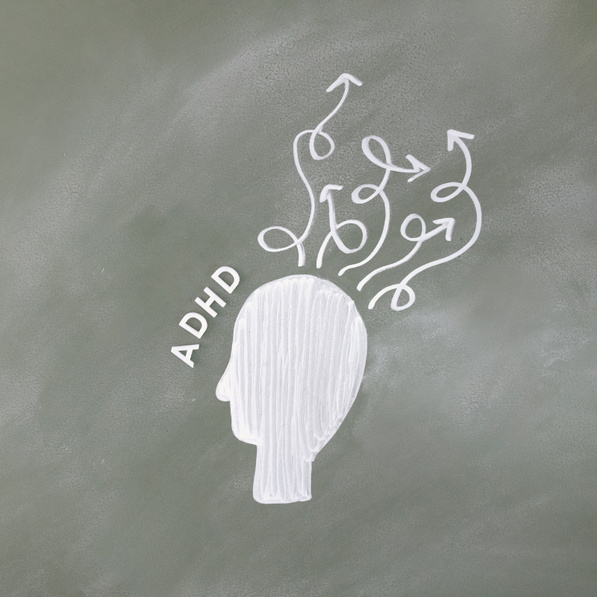ANXIETY COUNSELLING SERVICES

What Is Anxiety?
Anxiety is a natural and common emotional response to stress, characterized by feelings of fear, worry, or unease. It is a normal part of life and can even serve as a protective mechanism in certain situations. However, when anxiety becomes persistent, overwhelming, and interferes with daily functioning, it may indicate an anxiety disorder.
Anxiety disorders are a group of mental health conditions that involve excessive and uncontrollable worry or fear. They can manifest in various forms, such as generalized anxiety disorder (GAD), panic disorder, social anxiety disorder, specific phobias, and more. These disorders can significantly impact a person's well-being, relationships, and overall quality of life.
Anxiety is a natural and common emotional response to stress, characterized by feelings of fear, worry, or unease. It is a normal part of life and can even serve as a protective mechanism in certain situations. However, when anxiety becomes persistent, overwhelming, and interferes with daily functioning, it may indicate an anxiety disorder.
Anxiety disorders are a group of mental health conditions that involve excessive and uncontrollable worry or fear. They can manifest in various forms, such as generalized anxiety disorder (GAD), panic disorder, social anxiety disorder, specific phobias, and more. These disorders can significantly impact a person's well-being, relationships, and overall quality of life.
Symptoms of Anxiety
Anxiety is a natural and common emotional response to stress, characterized by feelings of fear, worry, or unease. It is a normal part of life and can even serve as a protective mechanism in certain situations. However, when anxiety becomes persistent, overwhelming, and interferes with daily functioning, it may indicate an anxiety disorder.
Anxiety disorders are a group of mental health conditions that involve excessive and uncontrollable worry or fear. They can manifest in various forms, such as generalized anxiety disorder (GAD), panic disorder, social anxiety disorder, specific phobias, and more. These disorders can significantly impact a person's well-being, relationships, and overall quality of life.
The symptoms of anxiety can vary from person to person and depend on the specific anxiety disorder. However, some common signs and symptoms include:
-
Excessive worry: Feeling restless, on edge, or constantly anticipating negative outcomes.
-
Physical symptoms: Increased heart rate, shortness of breath, sweating, trembling, muscle tension, headaches, and gastrointestinal discomfort.
-
Cognitive symptoms: Racing thoughts, difficulty concentrating, irritability, and sleep disturbances.
-
Avoidance behaviors: Avoiding certain situations or places due to fear or anxiety.
-
Social withdrawal: Withdrawing from social interactions and isolating oneself.
-
Panic attacks: Intense episodes of fear or discomfort, accompanied by physical sensations such as chest pain, dizziness, and a sense of impending doom.
-
It's important to note that experiencing occasional anxiety is normal, but when these symptoms become persistent, interfere with daily life, or cause significant distress, it may be indicative of an anxiety disorder.
Methods to Treat Anxiety
Thankfully, anxiety disorders are highly treatable, and various methods can help individuals manage and alleviate anxiety symptoms. Here are some commonly used treatment approaches:
-
Psychotherapy: Psychotherapy, also known as talk therapy, involves working with a trained therapist to explore the underlying causes of anxiety and develop coping strategies. Cognitive-behavioral therapy (CBT), exposure therapy, and acceptance and commitment therapy (ACT) are commonly used therapeutic approaches for anxiety disorders. Therapy helps individuals understand and challenge negative thought patterns, develop effective problem-solving skills, and gradually face feared situations.
-
Medication: In some cases, medication may be prescribed to manage anxiety symptoms. Antidepressants, such as selective serotonin reuptake inhibitors (SSRIs) or benzodiazepines, may be prescribed by a psychiatrist to help regulate brain chemistry and reduce symptoms of anxiety. Medication is often used in conjunction with psychotherapy for optimal results.
-
Lifestyle Changes: Adopting healthy lifestyle practices can significantly impact anxiety management. Regular exercise, adequate sleep, a balanced diet, and stress-reduction techniques such as mindfulness meditation, deep breathing exercises, and relaxation techniques can all contribute to reducing anxiety symptoms.
-
Support Network: Building a strong support network of family, friends, or support groups can provide invaluable emotional support during times of anxiety. Sharing experiences, seeking understanding, and receiving encouragement from others who have faced similar challenges can be empowering and reduce feelings of isolation.
-
Self-Care: Engaging in self-care activities that promote overall well-being is essential. Engaging in hobbies, practicing self-compassion, setting boundaries, and engaging in activities that bring joy and relaxation can help manage anxiety and improve overall mental health.
It's important to consult with a mental health professional to determine the most appropriate treatment plan for individual circumstances. They can provide a comprehensive assessment, diagnose anxiety disorders, and create a personalized treatment approach.


















